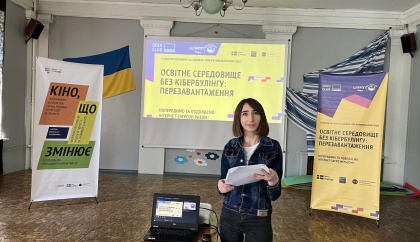
Olha Kotok works as a computer science teacher and consultant at the Center for Professional Development for Teachers in the town of Hoshcha, Rivne region. Searching for new forms of working with schoolchildren, Olha came across an opportunity to open a Docudays UA documentary film club at her school.
Reprint from the New Ukrainian School website.
For almost two years now, the teacher has been organizing screenings and discussions of human rights documentaries in the schools of her territorial community.
-
How do the film club activities influence the village youth?
-
How does documentary filmmaking help counteract cyberbullying?
-
What are the results of the advocacy campaign?
Olha Kotok, moderator of the “Dovkil” Docudays UA at the Rusyvel Lyceum of the Hoshcha Village Council, answered all these questions for us.
“I'VE BEEN THERE, TOO”: WHY A TEACHER DECIDED TO FIGHT CYBERBULLYING WITH DOCUMENTARY FILMS
“I’ve had the idea to work with the cyberbullying issue through documentary films since the start of the film club,” Olha recalls. ”I saw how schoolchildren responded to the films we watched and discussed. Children are a very grateful audience, which means they are more direct and open than adults and are not afraid to express their opinions. They are, so to say, pure souls with whom you can work and who are ready to perceive important information. Skills related to human rights defense are very important for their future.”
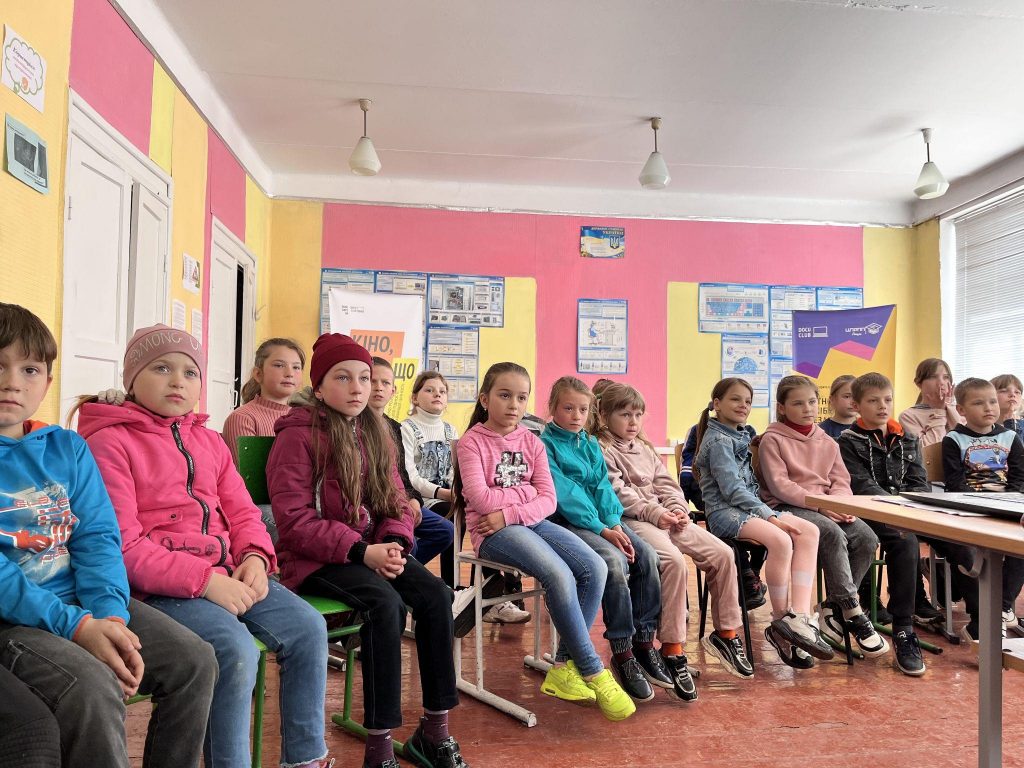
Film screening for junior schoolchildren
With the support of the DOCU/CLUB Network, Olha Kotok implemented an advocacy project in her community to combat cyberbullying in schools. In fact, she held screenings and discussions of the film “Pranked” by French director Ismaël Joffroy Chanduti in all the educational institutions of the Hoshcha territorial community. This short film tells the story of swatting, a life-threatening form of cyber-violence that lurks in the online world.
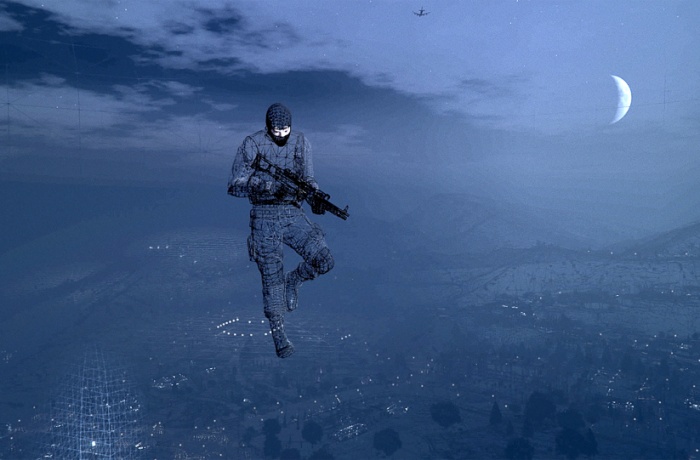
A still from the film “Pranked”
“This topic is close to my heart as a computer science teacher,” says the moderator. “The pandemic and the full-scale war have relocated a significant part of our lives into the online world. Of course, schoolchildren use the Internet as well.
The problem is, neither parents nor children know the rules of behavior in the online world, nor are they aware of the dangers that lie in wait for them. Surely, teachers discuss bullying and cyberbullying with their pupils, but these conversations often take place in the format of lectures. This documentary helped me bring the conversation into a practical realm.”
The teacher says that, at the beginning of the project, she did not even realize that there were so many streamers among the schoolchildren who broadcast themselves and their actions live or watch other people's broadcasts. The disputes, insults, and threats they see or experience while streaming are not perceived as a threat. Students often don't realize that such actions involve risks and can have dangerous consequences for their physical and mental health.
“The film becomes a key that helps children open up and share their experiences. The most valuable thing for me is that students recognize themselves, realizing that, in some situations, they themselves are victims of cyberbullying or bullies.
I often hear during the discussion:
-
“I've been there, too,”
-
“I've been in that situation,”
-
“I didn't even think I was humiliating anyone with my messages.”
For me, this means they have reflected on these actions for the first time. And I'm sure that next time, before they write some angry or offensive comment under someone's post, they will think about how the recipient will feel,” the film club moderator is convinced.
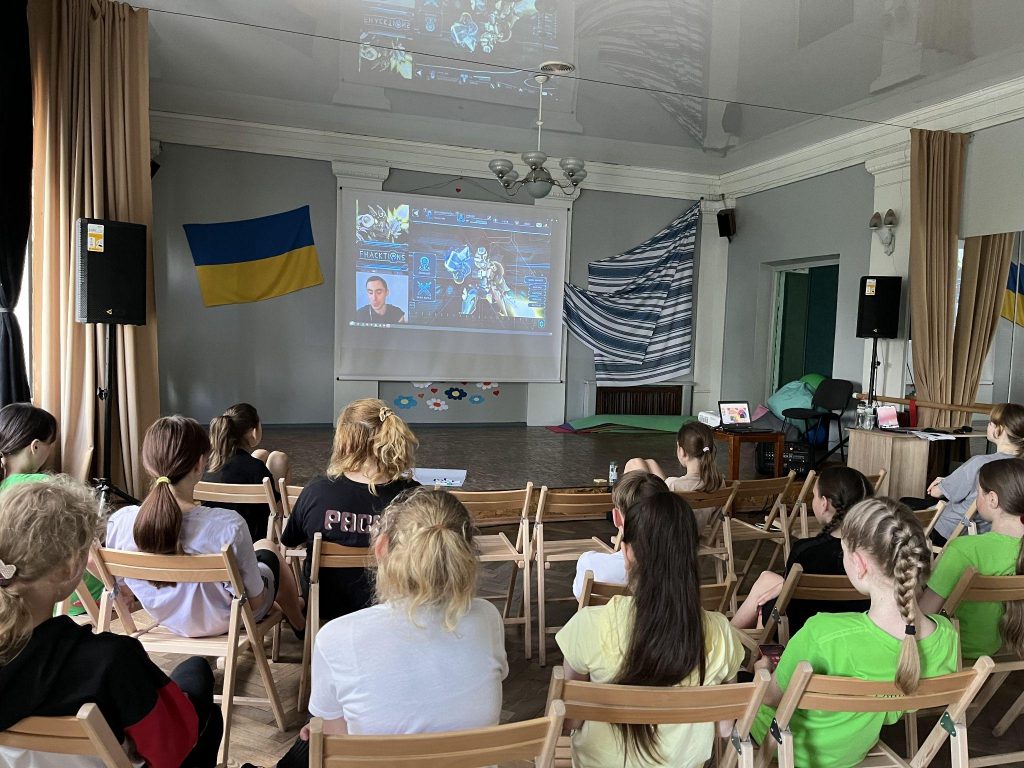
Screening of the film “Pranked”
CONSISTENCY AND PLANS FOR THE FUTURE
To achieve this result and avoid the lecture approach, Olha Kotok uses different ways of discussing the film, such as: discussions between students interactive tasks, role-playing cyberbullying situations.
She explains: “I structure the discussion of the film in such a way as to involve all the participants and organize them into groups. The children are fascinated by this, and they readily perceive new information, recommendations, or advice from me. During the discussion, they also share their discoveries.
For example, it often comes as a surprise that cyberbullying can be punished. There is a stereotype that no one will punish you for your actions until you have a bruise, but it turns out that you shouldn't write offensive messages on the Internet either way.
I ask high schoolers whether cyberbullying can cause physical harm to their health. The vast majority say no. When I introduce them to the real stories of people who have died as a result of cyberbullying, they begin to truly realize the depth of the problem. The documentary creates the basis for such a deep and trusting conversation.”
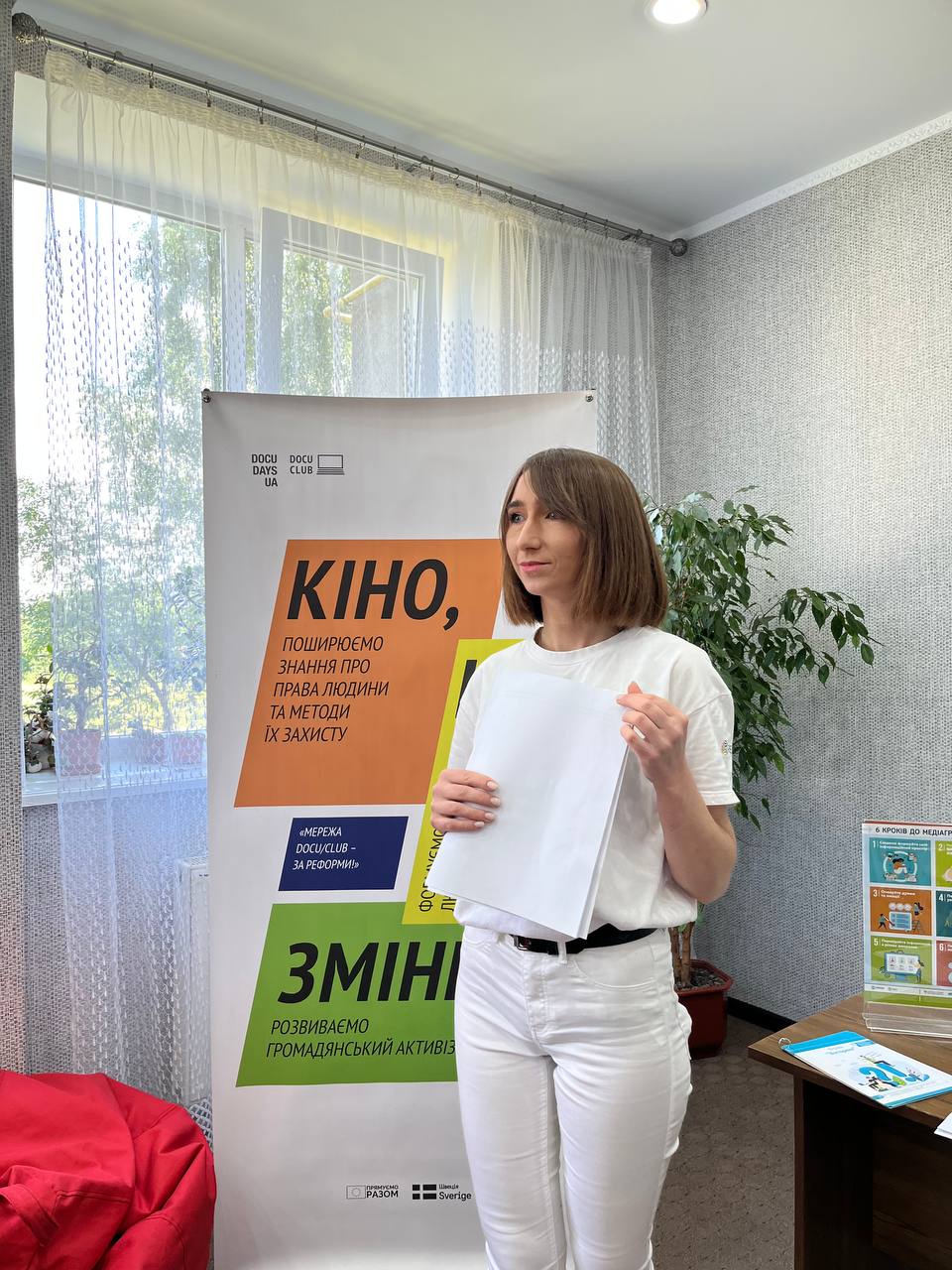
Olga Kotok
Cyberbullying affects people of all ages. Thus, the moderator of the film club decided to show the film not only to schoolchildren from the Hoshcha community's educational institutions:
“Cyberbullying can affect anyone. I'm talking to schoolchildren, but their relatives and friends might also suffer from cyberbullying. And this is just as horrible. Therefore, the events we hold in the course of the advocacy project are not only aimed at children. We work with both parents and teachers as well.
I'm happy to share information, all the best practices, and methodological materials with them so that they can also become aware of the problem. One person can achieve a lot, but when a large number of people unite around countering cyberbullying, the result is more substantial and significant,” the moderator is convinced.
As a result, the Hoshcha community's education department decided to amend its 2023-2-24 action plan to combat bullying and cyberbullying.
“This means we continue holding such events,” says Olha Kotok. “They have become systemic, which is very important. Manifestations of cyberbullying are changing, and we need to be prepared for this. We cannot say that we have completely overcome this phenomenon or taught everyone how to counteract it. It's like first aid skills: you know what to do as long as you keep practicing. After a year or two without practice, everything will be forgotten. Therefore, both children and adults need to be constantly reminded of the dangers of cyberbullying. That's why I am convinced that this systematic approach will definitely yield results.”
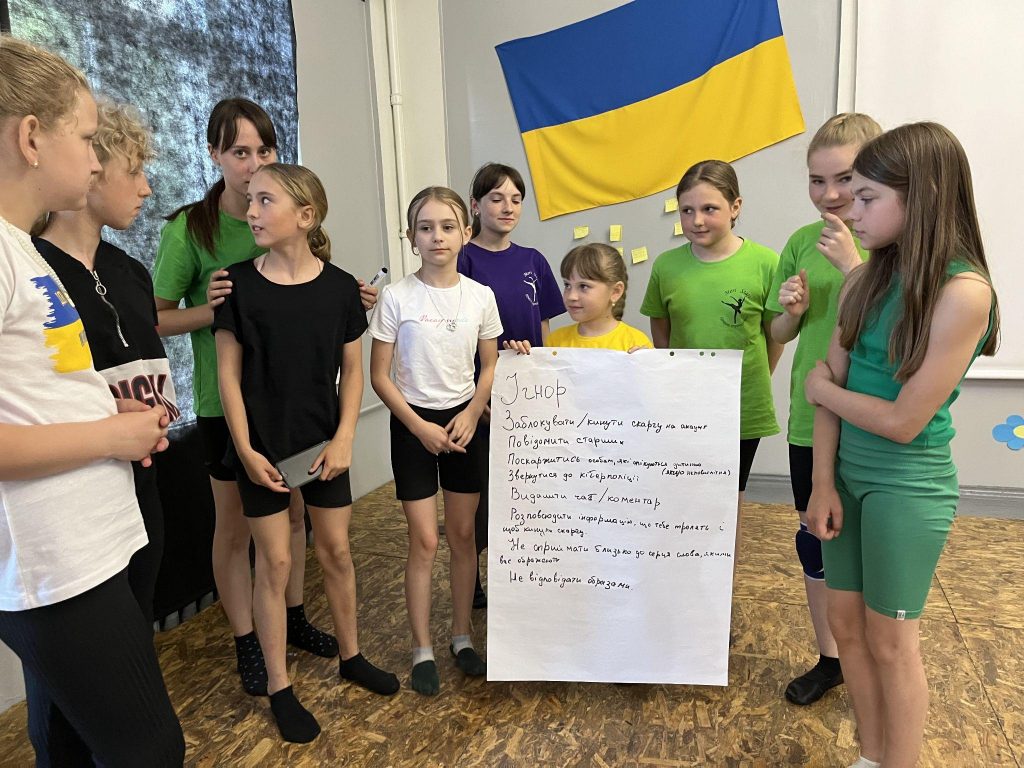
Training on cyberbullying
Throughout her advocacy campaign, Olha has been supported by the community authorities, educators, and staff of the Hoshcha Center for Teachers’ Professional Development. “We are well aware of the level of material and technical equipment at schools, especially rural ones. We know about the current shortage of qualified personnel in education. But we are trying our best to give our young people a lot of useful and practical information they will need in their adult lives. I think we will continue this project. We still have many challenges to overcome,” says the teacher.
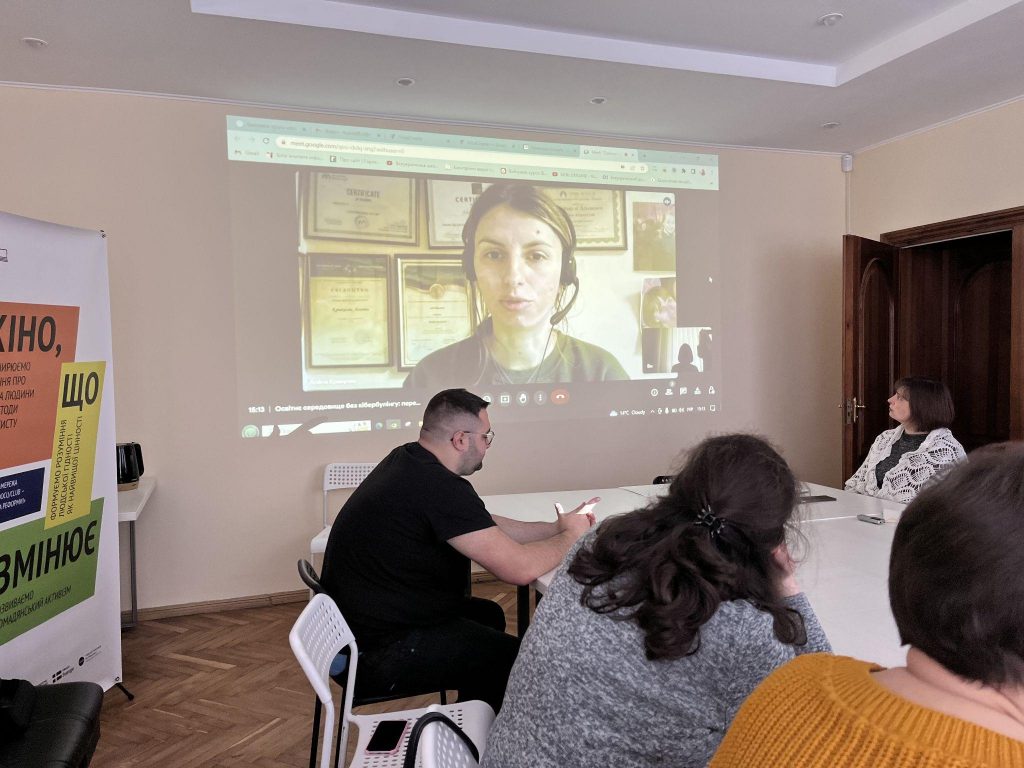
Discussion of the film with teachers with the participation of Alyona Kryvuliak, director of the National Hotlines Department at La Strada-Ukraine, expert on cyberbullying and cybersecurity
This year, the school film club run by Olha Kotok initiated a new advocacy campaign in the community, which is dedicated to the development of a local programme of national and patriotic education. “It will be about Ukrainian identity,” the moderator announces. ”I believe that students, teachers, parents, the entire community, and local authorities should be involved in developing the programme. It should be a truly effective programme, because its topic is of particular importance in times of war.”
In the fall, Olha Kotok will present the results of the new advocacy campaign. In the meantime, the film club moderator is ready to share her experience with her colleagues: “We have done a lot to combat cyberbullying at educational institutions, and I don't mind sharing our ideas and best practices with other communities. Upon request from my fellow educators, I will be happy to hold a moderated screening and discussion of the documentary in their institutions, show how it works in practice, and share this effective tool for working with schoolchildren.”
You can get in touch with Olha Kotok via Facebook.
Olha Gurgu, specially for the New Ukrainian School
Photo: personal archive of Olha Kotok
The development of the DOCU/CLUB Network is funded by the United States Agency for International Development (USAID), the Embassy of Sweden in Ukraine, the National Endowment for Democracy (NED) and the Fondation de France.
The opinions, conclusions, or recommendations are those of the authors and compilers of this publication and do not necessarily reflect the views of the governments or charitable organizations of these countries. The authors and compilers are solely responsible for the content of this publication.



